
Self Care
Self-care is important. A little "you time" goes a long way!
When you take time to care for yourself, you are better able to care for your child. Even a few minutes of “you time” can help you to recharge so that you can parent at your best. Stress causes wear and tear on a person, inside and out. Keep these tips in mind next time you’re feeling overwhelmed.
- Stay Social. There will be times when you need to spend more time at home. That can take a toll. Reach out to loved ones and friends with a phone call or video chat. Keeping your distance from others doesn’t mean you need to go it alone.
- Sleep. When your little one lays down to rest, try to do the same. If he’s having trouble settling down, sing him a quiet song that you loved when you were small (one that calms you down, too).
- Use water to relax. As you’re bathing your child, soak your hands in the warm water and give yourself a little hand massage, taking long deep breaths as you do so.
- Keep a journal by your bed. Before you fall asleep, remember something funny, kind, or surprising that your child did today. Write a few lines that capture the memory. If you are feeling stressed or down, you can read through your memory journal.
- Fill your cup: Get a glass of water and find a comfy spot to sit. Let your child know, “I’m just going to sit and (read/think/breathe) while I drink this glass of water.” Explain that you’ll be available once the glass is empty. Children have difficulty keeping track of time, and this is a concrete way to help them understand you’re taking a few minutes to yourself.
- Turn on the tunes! Never underestimate the power of music to change the mood. Put together a playlist of songs that make you feel good. You might create different playlists for different moods (one to relax, one to energize, and so on).
- Get moving. Taking movement breaks throughout the day can help alleviate stress and keep you well. Even if you’re stuck inside, try a few small-space, body-weight exercises like squats, lunges, and arm-raises.
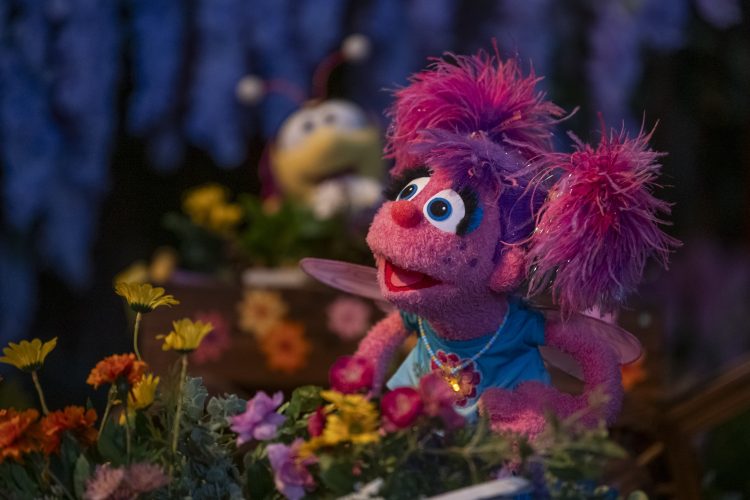
Watch and Play: Abby's Magical Beasties
Watch this episode and explore ways to extend the learning at home.
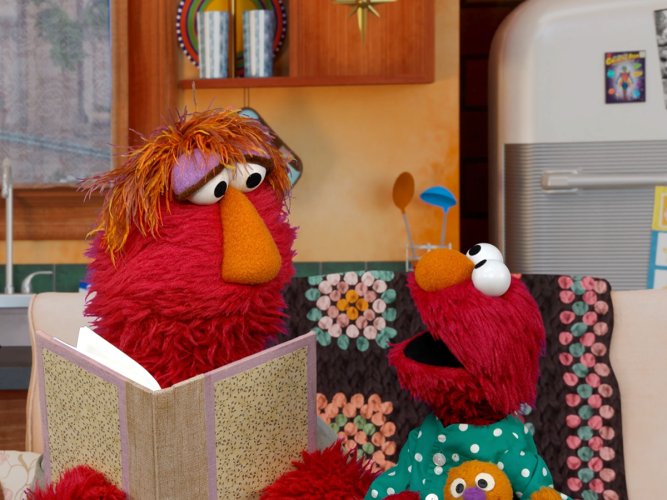
Go To Sleep, Elmo!
Handling a middle-of-the-night monster moment.

Monster Meltdown
Meltdowns happen… but they are somewhat predictable! As you try to handle them, curiosity and patience go a long way.
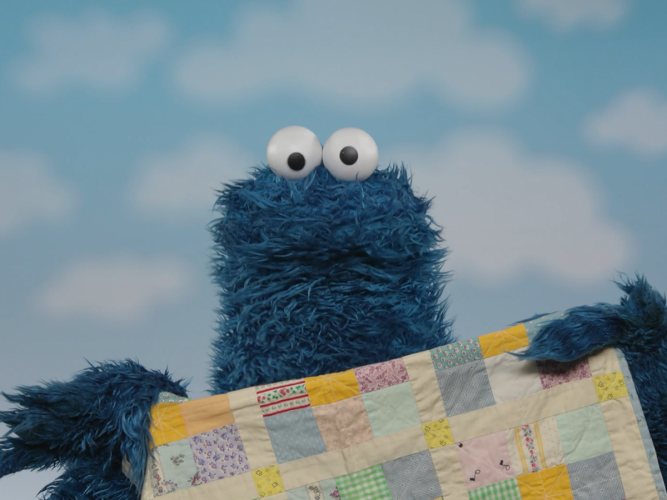
Cookie Monster’s Beach Day
When children are in the hospital, their imagination can become a valuable tool in soothing themselves.
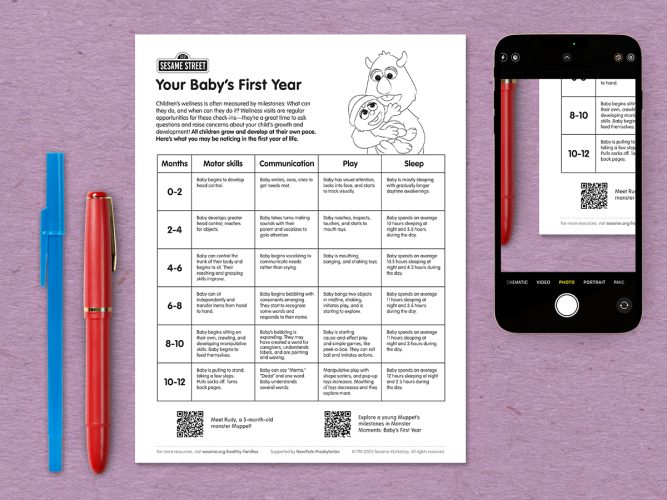
Milestones: Your Baby’s First Year
All children grow and develop at their own pace; use this chart to guide your expectations and observations so you can talk to your child’s pediatrician about questions or concerns.
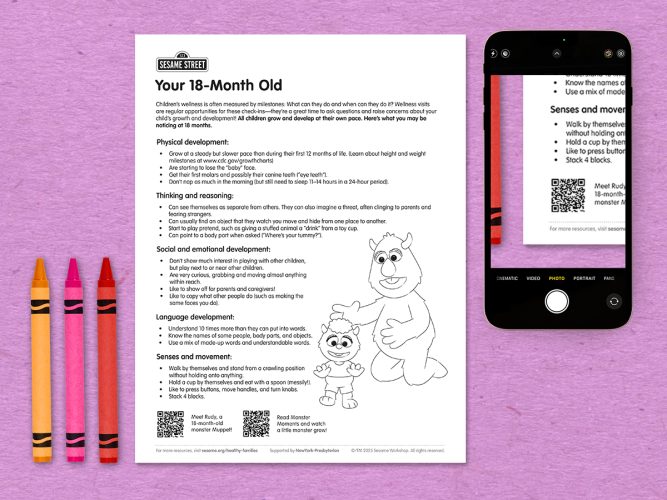
Milestones: Your 18-Month Old
All children grow and develop at their own pace; use this chart to guide your expectations and observations so you can talk to your child’s pediatrician about questions or concerns.
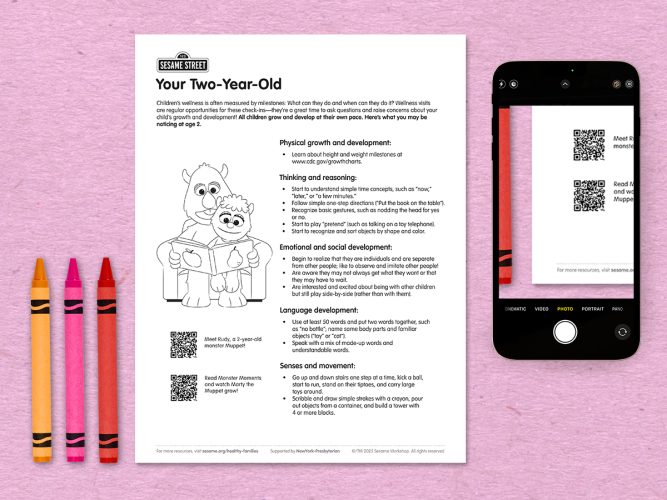
Milestones: Your Two-Year-Old
All children grow and develop at their own pace; use this chart to guide your expectations and observations so you can talk to your child’s pediatrician about questions or concerns.
